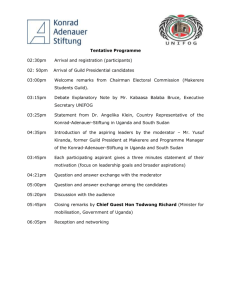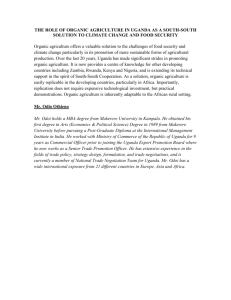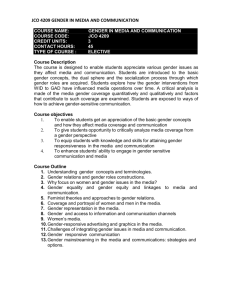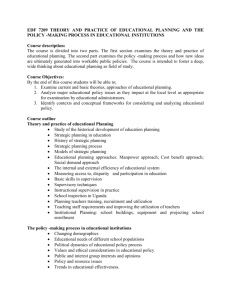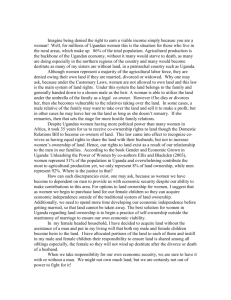vector cambridge
advertisement
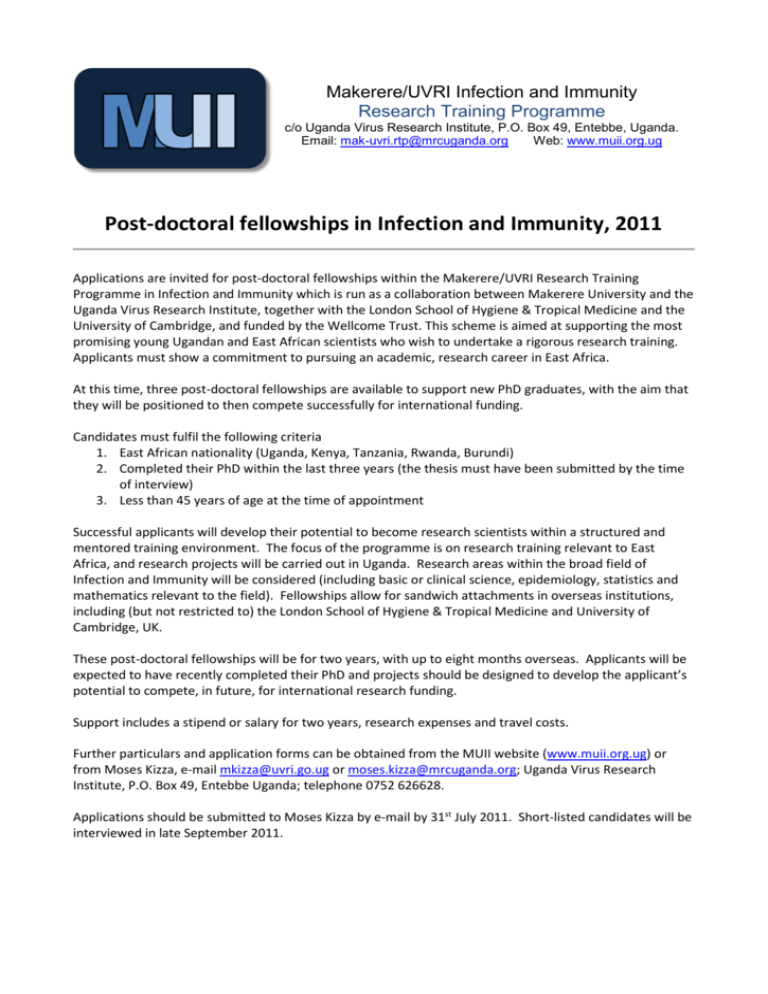
Makerere/UVRI Infection and Immunity Research Training Programme c/o Uganda Virus Research Institute, P.O. Box 49, Entebbe, Uganda. Email: mak-uvri.rtp@mrcuganda.org Web: www.muii.org.ug Post-doctoral fellowships in Infection and Immunity, 2011 Applications are invited for post-doctoral fellowships within the Makerere/UVRI Research Training Programme in Infection and Immunity which is run as a collaboration between Makerere University and the Uganda Virus Research Institute, together with the London School of Hygiene & Tropical Medicine and the University of Cambridge, and funded by the Wellcome Trust. This scheme is aimed at supporting the most promising young Ugandan and East African scientists who wish to undertake a rigorous research training. Applicants must show a commitment to pursuing an academic, research career in East Africa. At this time, three post-doctoral fellowships are available to support new PhD graduates, with the aim that they will be positioned to then compete successfully for international funding. Candidates must fulfil the following criteria 1. East African nationality (Uganda, Kenya, Tanzania, Rwanda, Burundi) 2. Completed their PhD within the last three years (the thesis must have been submitted by the time of interview) 3. Less than 45 years of age at the time of appointment Successful applicants will develop their potential to become research scientists within a structured and mentored training environment. The focus of the programme is on research training relevant to East Africa, and research projects will be carried out in Uganda. Research areas within the broad field of Infection and Immunity will be considered (including basic or clinical science, epidemiology, statistics and mathematics relevant to the field). Fellowships allow for sandwich attachments in overseas institutions, including (but not restricted to) the London School of Hygiene & Tropical Medicine and University of Cambridge, UK. These post-doctoral fellowships will be for two years, with up to eight months overseas. Applicants will be expected to have recently completed their PhD and projects should be designed to develop the applicant’s potential to compete, in future, for international research funding. Support includes a stipend or salary for two years, research expenses and travel costs. Further particulars and application forms can be obtained from the MUII website (www.muii.org.ug) or from Moses Kizza, e-mail mkizza@uvri.go.ug or moses.kizza@mrcuganda.org; Uganda Virus Research Institute, P.O. Box 49, Entebbe Uganda; telephone 0752 626628. Applications should be submitted to Moses Kizza by e-mail by 31st July 2011. Short-listed candidates will be interviewed in late September 2011. GENERAL INFORMATION The Uganda Virus Research Institute hosts the MUII programme, providing a rich atmosphere of partnership and research and access to research opportunities within established cohorts, laboratories, data and sample archives. At UVRI, the UK Medical Research Council Unit focuses on HIV-infection. Current activities include epidemiological, clinical, behavioural and economic studies within cohorts such as the large general population cohort study in rural south-west Uganda, within trials of preventive and treatment interventions for HIV, and work on sexually transmitted infections and human papilloma virus. Opportunities for studies on the virology and immunology of HIV infection relating to vaccine trials are also available with the MRC Unit and International AIDS Vaccine Initiative (IAVI). The MRC Unit contributes a major resource for statistical/ epidemiological training and will offer statistical support for fellows participating in the programme. The Centers for Disease Control (CDC-Uganda) and Rakai Health Sciences Program (RHSP) also offer project opportunities in epidemiology, clinical and behavioural science related to HIV infection. The Wellcome Trust research group focuses on interactions between infections, vaccines and disease. The group has its clinical base at Entebbe Hospital and its immunology laboratory at UVRI. Research opportunities relate to effects of parasitic infections on responses to vaccines and on immunity to other pathogens; effects of infections on atopic disease (the “Hygiene Hypothesis” and its implications for developing countries); and effects of maternal infections on immunological development and disease susceptibility of their offspring. The group also has a track record for studies on interactions between tuberculosis and HIV and helminths, and can support projects in these areas. Also at the Institute, the department of Entomology offers research opportunities in the molecular biology of insect vectors and the Expanded Programme on Immunisation laboratories offers opportunities in vaccine-preventable diseases and surveillance. Makerere University offers a broad range of collaborative opportunities within the faculties of medicine, veterinary medicine, science and social science. The College of Health Sciences contributes expertise in clinical trials, microbiology, molecular biology, paediatrics and the epidemiology of child health. The Infectious Diseases Institute and the Department of Microbiology are particularly active in Infection and Immunity collaboration. The College has already been linked with UVRI in clinical and immunological studies of tuberculosis, of antiretroviral therapy for HIV and of human papilloma virus. Also within the College, the School of Public Health contributes epidemiology, modelling and health economics, and expertise in emergencies (refugees and disasters). The Faculty of Veterinary Medicine offers opportunities in studies of zoonoses, food-borne diseases and the epidemiology of animal health; and has a particular interest in the epidemiology, physiology and molecular biology of trypanosomiasis. Another collaboration addresses influenza in Uganda, with sample collection and initial screening at the School of Veterinary Medicine, and confirmatory testing at UVRI. The Cambridge Schistosome Immunology Group, through large immuno-epidemiological studies involving South-South collaborations between Uganda, Kenya and Mali, address protective immunity against schistosomiasis, its morbidity and its interactions with other infections and environmental factors; they support the Wellcome Trust group in Entebbe with expertise in helminth immunology. The group provides an established framework of on-going multi-disciplinary research, in partnership with the Vector Control Division of the Ministry of Health, UVRI and Makerere, allowing Ugandan and East African students to carry out original projects on helminthic and immunological topics. Visits to Cambridge can provide further opportunities in advanced statistical analysis, cellular and serological immunology, geographical information system and conventional epidemiological analysis, and post-genomic and bioinformatic methodologies for human and parasite studies. Ugandan fellows, as visiting scholars, have access to Cambridge University’s full range of world class academic facilities: seminars, lectures, specialised training and transferable skills courses. Fellows may gain experience from existing collaborations with other University Departments and local research institutes, such as the Sanger Centre and the MRC Cambridge Biostatistics Unit. The London School of Hygiene & Tropical Medicine (LSHTM) has had links with Uganda almost from its foundation in 1899. The Faculty of Infectious and Tropical Diseases (ITD) contains a large pool of mentors available to co-supervise fellows in the programme. The Immunology Deaprtment, within ITD, focuses exclusively on immunology of infectious diseases; the Pathogen Molecular Biology Department works on bacterial and parasitic diseases of major international importance; the Clinical Research Department offers expertise in malaria, TB, HIV, leprosy and sexually transmitted infections; and the Disease Control and Vector Biology Department, which hosts the Malaria Centre, expertise in geographical information systems, underpinning a Wellcome Trust-funded programme on the epidemiology and control of helminths in East Africa. All provide excellent opportunities for “sandwich” attachments. State of the art laboratories include category 3 and animal facilities, an insectary, live cell confocal imaging, cell sorting and surface plasmon resonance facilities; and a genome resource facility including both glass slide and Affymetrix microarray technology platforms and a new protein expression facility, complemented by a dedicated bioinformatics suite which greatly expedites genome data mining, population genetics, mathematical modelling, phylogenetic and microarray analyses. The School’s postgraduate programme hosts around 2000 MSc students and 300 research degree students at any given time. ITD runs MScs in immunology, medical microbiology and molecular biology, and training in other disciplines through the short course programme: clinical trials, epidemiology, statistics, mathematical modelling and geographical information systems. Since MScs are modular, with more than 100 modules available, students can tailor training to their needs. New partners. The programme is open to new or additional external links, as appropriate to individual projects. FELLOWSHIP PROGRAMME INFORMATION Currently, four PhD and two post-doctoral fellows are supported by the programme; the successful candidates will join this supportive peer group. Fellows are required to conduct their research based at either the Uganda Virus Research Institute or at Makerere University. Collaborative projects that link the institutions are encouraged. Candidates are also expected to propose overseas attachments of up to eight months, designed to learn new skills or techniques, and to foster collaborations which may have long-term benefits for their career. The University of Cambridge and the London School of Hygiene & Tropical Medicine are key partners in MUII and collaborations within these institutions are also encouraged, although collaborations with other institutions can be considered if these are best for the proposed work. Candidates who require assistance in selecting suitable projects and attachments are advised to contact Prof. Alison Elliott (alison.tom@infocom.co.ug), Dr Stephen Cose (stephen.cose@mrcuganda.org) or Prof Eli Katunguka (erkatunguka@vetmed.mak.ac.ug). COMPLETING THE APPLICATION FORM: Having identified appropriate supervisors and collaborators, candidates will then work with them to develop their proposals using the application form. The intention of these fellowships is to allow the successful applicant to conduct work that will form a springboard for successful applications for longerterm post-doctoral funding. Proposals should be written with this in mind. Sponsors, supervisors, co-mentors and collaborators: A sponsor is a person who guarantees access to the facilities required for the work, e.g. laboratory or office space, clinic or datasets. Each candidate must have a sponsor at the institution where most of the work will be conducted. If significant facilities are to be provided by one or more additional institutions, sponsors at those institutions will also be required. A supervisor is a person who directly advises you on your work. Each candidate is expected to have a supervisor at the institution where they will be based. A co-mentor is a collaborator at a partner institution (such as a northern institution) who directly advises you while you are at that institution. Normally they will also contribute input on the project as a whole. You should have co-mentors at any other institution (other than your lead East African Institution) where you propose to conduct a significant amount of work. These arrangements should be discussed and agreed with your supervisor. In some cases the supervisor/ co-mentor may also be the sponsor. As well as the required supervisors and co-mentors, you may wish to indicate collaborators who will make a specific, additional contribution to the proposed work. If so, please do so by using the form provided. Research proposal: A concept research proposal of 2000 words is required. It is important that you understand your proposed work thoroughly, provide an excellent, concise description in the proposal, and can present and defend the proposed work at the interview. Some useful tips for grant writing may be found at http://www.ssitdr.net/grant_writing/presentation.html. Financial support: Standard provision will be made for a stipend for the successful applicant and for travel costs and bench fees as follows: Stipend: starting at £1,400 per month (gross basic pay) (supplemented by a subsistence allowance during periods spent overseas which will be calculated using standard rates, dependent on time overseas, up to a maximum of 8 months) Health insurance Travel costs for fellow (airfares, visas, insurance): £2,900 Allowances for conference attendance: £2,000 Costs for UK co-mentor to visit East Africa (airfare, accommodation and visa): £1,232 These items need not be included in the budget presented by the candidate. The budget presented by the candidate should cover all research materials and expenses required for the proposed project and for any travel or training costs required in addition to those listed above. For example, candidates who anticipate making more than two trips to the linked overseas institution should budget for additional airfares. Where part of the cost of the proposed work is to be met from other sources, this should be explained. Funds required are expected to vary according to the work proposed, but an average figure of up to £23,000 will be considered. SELECTION PROCESS: Candidates will be short-listed and short-listed proposals will be sent for expert review. Short-listed candidates will be invited for interview. They will be expected to give a brief presentation about their proposed work and answer questions about the proposal, and about their past career and future plans. Interviews are expected to be held in October 2011 APPLICATIONS Applications comprising only the completed application form should be submitted to Moses Kizza, e-mail mkizza@uvri.go.ug or moses.kizza@mrcuganda.org; Uganda Virus Research Institute, P.O. Box 49, Entebbe Uganda; telephone 0752 626628 by 31st August 2011.

